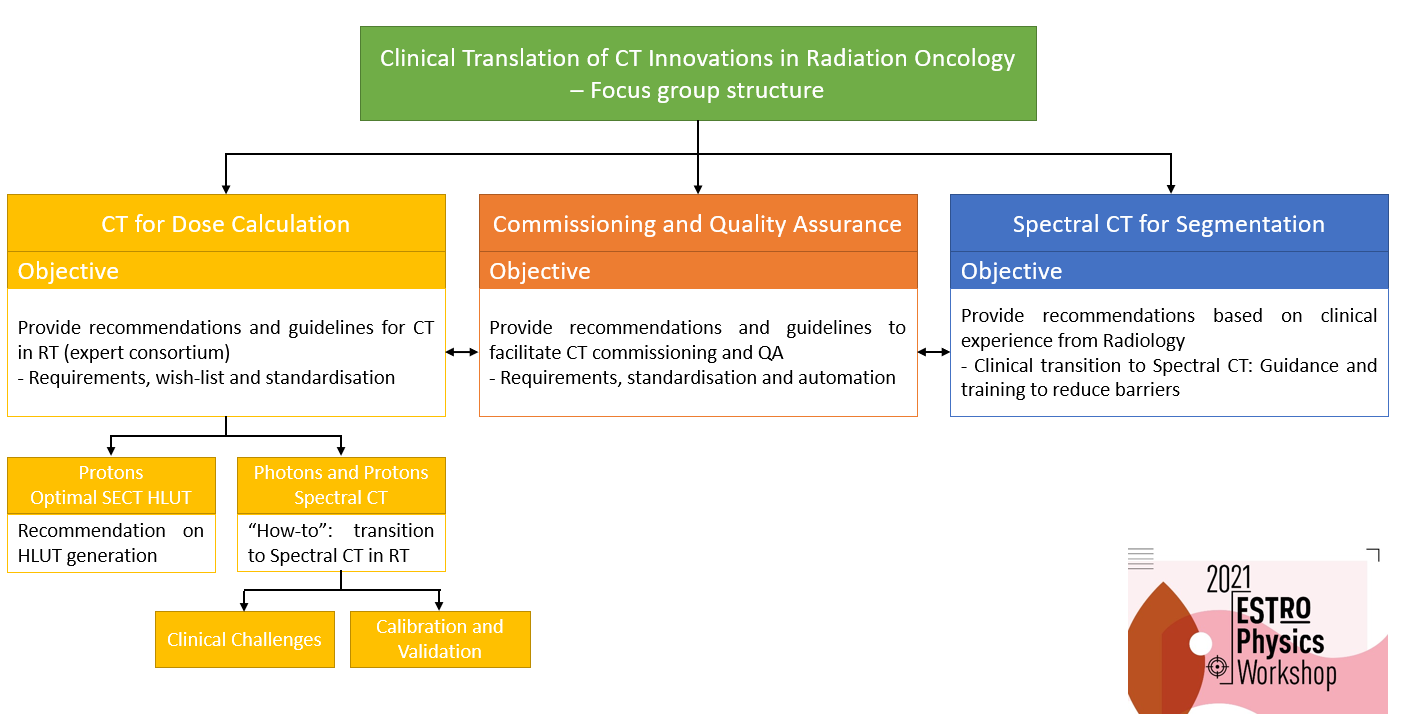Clinical translation of CT innovations – Report from the 2021 physics workshop
Vicki Taasti,
Denmark
SP-0035
Abstract
Clinical translation of CT innovations – Report from the 2021 physics workshop
Authors: Vicki Taasti1, Thomas Bortfeld2, Patrick Wohlfahrt3
1Department of Radiation Oncology (MAASTRO), GROW – School for Oncology, Maastricht University Medical Centre+, Maastricht, The Netherlands; 2Department of Radiation Oncology, Massachusetts General Hospital and Harvard Medical School, Boston, MA, USA; 3Massachusetts General Hospital and Harvard Medical School, Department of Radiation Oncology, Boston, MA, USA., Now with Siemens Healthineers, Forchheim, Germany
Show Affiliations
Hide Affiliations
Abstract Text
In this presentation, we will give a summary of the ESTRO Physics Workshop on Clinical Translation of CT Innovations in Radiation Oncology as well as the initiatives inspired by the workshop.
We organised this workshop as an interactive gathering of CT enthusiasts from clinics, research institutes and industrial partners to share their experiences, challenges and desires. The main aim was to facilitate translation of CT innovations into the clinic, by establishing collaborations between CT experts across institutes, and by specifying technical requirements and establishing standardisation guidelines. In total, 25 active participants joined our two-part online physics workshop. The two parts took place in June and October 2021. The workshop was complemented by monthly meetings in smaller focus groups in the interim period to foster in-depth discussions and inter-institutional exchange on conventional and spectral CT for dose calculation and organ and tumour segmentation, as well as CT commissioning and quality assurance.
During the online workshop, we had tailored keynote presentations, vision talks and expert statements which were followed by panel discussions, as well as topical deep-dive sessions. These stimulated brainstorming within the group. The use of pre-structured interactive whiteboards enabled all participants jointly to collect ideas, questions, comments and recommendations simultaneously. Online questionnaires and live polls were used to determine trends in real-time and to kick-off controversial discussions. The change in the workshop structure, in regards to the previous ESTRO Physics Workshops, from a one-time event to a self-evolving working group over months framed by two multi-day workshops helped to build close personal connections and has already led to the establishment of many clinical collaborations among institutions on CT implementation and commissioning.
We wanted to continue these joint efforts to establish a supportive and collaborative framework among clinics to ease the widespread clinical translation of CT innovations. Therefore, we have decided to drive this initiative through formation of a CT working group in combination with a data-sharing hub and webcast series. Our workshop clearly unveiled participants’ wishes to establish an open exchange of clinical CT experiences and commissioning data, supplemented with how-to recommendations and guidelines. We are currently in the process of fine-tuning the overall concept of this initiative. In the meanwhile, one of the first outcomes of this workshop is now being finalised; together with the European Particle Therapy Network (EPTN), we are developing a detailed step-by-step guideline on CT calibration for proton therapy. These first outcomes and the further development of these initiatives will be the main focus point of this presentation, which we hope will encourage even more people to get as excited about CT as we are, and to join our further efforts.
